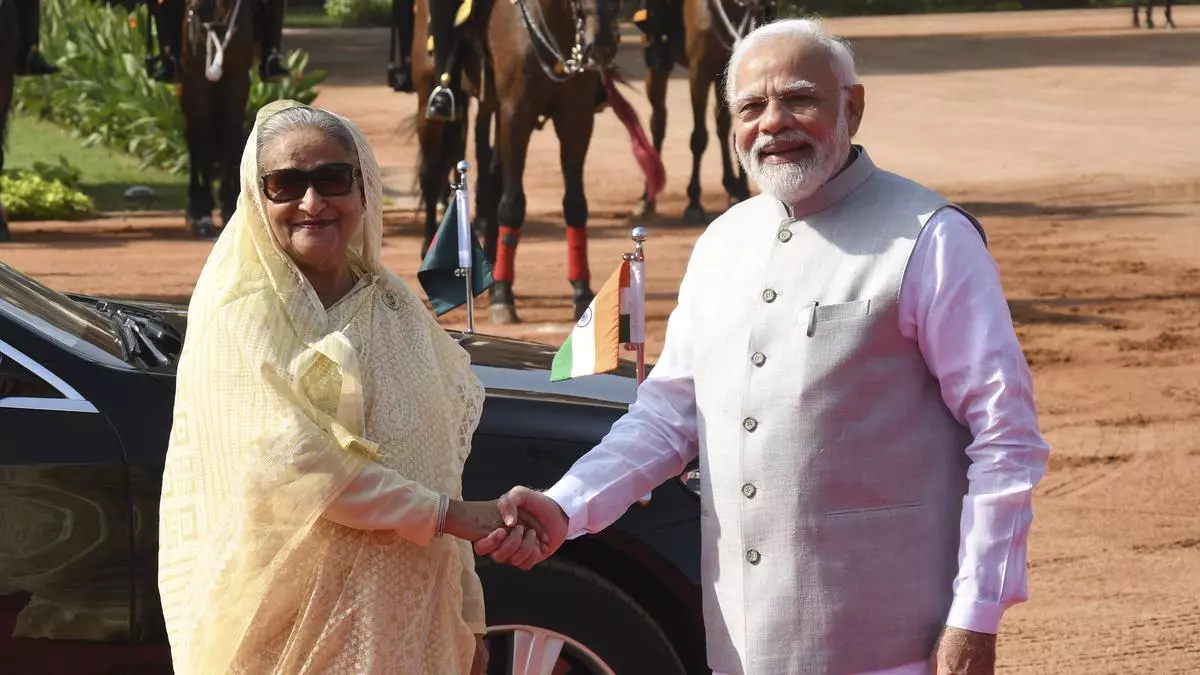India, Bangladesh to start negotiating free trade pact this year
India and Bangladesh have decided to start negotiations this year on a Bilateral Comprehensive Economic Partnership Agreement – a free trade agreement in goods, services, investments and other related areas – with the aim of implementing the agreement by the time Bangladesh graduates from its least developed country status in 2026.
In their bilateral meeting on Tuesday, Prime Minister Narendra Modi and his Bangladeshi counterpart Sheikh Hasina, who is on a four-day visit to India, discussed further strengthening the development partnership, including modernizing railway infrastructure projects, and building resilient supply chains between the two countries. Foreign Minister Vinay Quatra told a news briefing that the two countries and throughout the region, continue to have close security cooperation.
Signing memorandums of understanding
The two countries signed seven memorandums of understanding in areas such as water sharing, including the sharing of the Kushiara River waters; railway infrastructure; training of judicial personnel; and cooperation in science and technology.
“Our bilateral trade is growing rapidly. Today, India is the largest market in Asia for Bangladesh’s exports. To further accelerate this growth, we will soon begin discussions on a Bilateral Comprehensive Economic Partnership Agreement (CEPA),” Modi said in his press release.
Despite the pandemic, Kwatra said, bilateral trade between India and Bangladesh reached an all-time high of 18 billion in the last financial year.
Economic Partnership Agreement
“To maintain the momentum, the two leaders have directed the relevant ministries to start negotiations on a comprehensive economic partnership agreement this year and complete them in time for Bangladesh’s eventual graduation from least developed country status,” Quatra noted.
Once Bangladesh graduates from its LDC status, which is estimated to happen in November 2026, it will lose LDC privileges such as duty-free and quota-free access for goods it enjoys in India under SAFTA. Dhaka will try to retain the benefits under the India-Bangladesh Free Trade Agreement.
The two leaders also stressed the importance of continuing close security cooperation in the areas of combating terrorism and border management, and further strengthening development partnerships, including developing railway infrastructure projects and building resilient supply chains.
We also decided to increase cooperation in sectors such as information technology, space and nuclear energy, which are of interest to the younger generations. We will also continue to cooperate on climate change and preserve a common heritage such as the Sundarbans.”
Hasina also met President Draupadi Mormo at Rashtrapati Bhawan on Tuesday.
